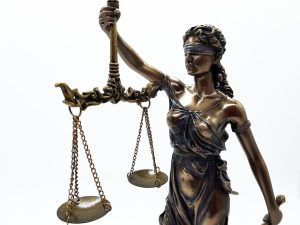The Conservative government sidestepped parliament in order to increase anti-protest police powers. Now, on 21 May, the High Court ruled that the government acted unlawfully.
High Court: Tory executive overreach
The government used secondary legislation to change the law so that police can crackdown on protests that are considered ‘more than a minor’ disruption. This lowered the threshold from anything causing a ‘serious disruption’.
The High Court said the government ignored the will of parliament in doing so. The House of Lords had already rejected the provision.
Secondary legislation, known as Henry VIII powers, shifts power to the executive because the law changes face less parliamentary scrutiny and cannot be amended.
Under the June 2023 overreach measures, police have arrested hundreds of protestors including climate activist Greta Thunberg.
Indeed, the Home Office estimated that its lowering of the threshold would increase police intervention in protests by 50%.
The government says it will appeal the High Court decision.
“Victory for democracy”
Campaign group Liberty brought the successful court challenge where the High Court also found the government acted unlawfully by only consulting police groups about the legislation. The government did not consult protest groups.
Liberty’s director Akiko Hart said:
This ruling is a huge victory for democracy, and sets down an important marker to show that the Government cannot step outside of the law to do whatever it wants.
We all have the right to speak out on the issues we believe in, and it’s vital that the Government respects that. These dangerous powers were rejected by Parliament yet still sneaked through the back door with the clear intention of stopping protesters that the Government did not personally agree with, and were so vaguely worded that it meant that the police were given almost unlimited powers to shut down any other protest too.
This judgment sends a clear message that accountability matters, and that those in power must make decisions that respect our rights
CEO of Public Law Project Shameem Ahmad said:
We welcome the Court’s ruling, which recognises that our rights and constitution cannot be unilaterally and arbitrarily undermined by the executive and that ministers must not act outside of the powers granted to them by Parliament.
Attempts to further restrict the right to protest
Suella Braverman, who was home secretary at the time the government enacted the measures, has also called for ministers to gain the power to outright ban protests.
She accused anti-genocide marches in solidarity with Palestine of “mass extremism” and of ‘antisemitic chants’.
Both Labour and Tory leadership are engaged in the smearing of those protesting Israel’s conduct. In Oct 2023, Labour leader Keir Starmer suspended Andy McDonald MP for comments he made at a pro-Palestine march.
The apparently “deeply offensive” words were:
We won’t rest until we have justice, until all people, Israelis and Palestinians, between the river and the sea can live in peaceful liberty. Free, free Palestine!
Starmer also enabled the arrest and charging of three pro-Palestine Youth Demand activists for protesting outside his house.
Establishment managers in both Labour and Tory are seeking to restrict our rights to freedom of expression and assembly. Fortunately, the High Court ruling has quashed the government using executive power to do so.
Featured image via Liberty – X




